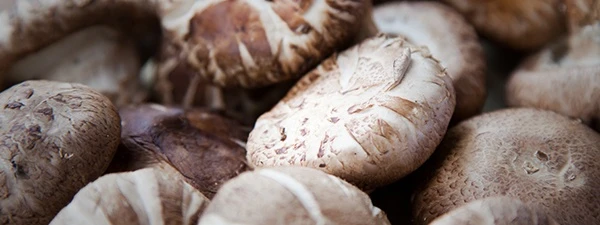It’s Breast Cancer Awareness Month!

Leading a Healthy Lifestyle
- Stay active. Based on numerous studies and analyses, the research shows that 45 to 60 minutes of moderate activity a minimum of five days a week, can reduce your breast cancer risk by 30 to 40 percent. According to the Obstetricians and Gynecologists of Canada, not exercising could increase your breast cancer risk by 60 percent.
- Keep a healthy body weight. Research shows that women who gain a minor amount of weight (11 pounds) have an increased breast cancer risk. This increased weight results in more fat cells which in turn causes a higher estrogen level. Estrogen is recognized as the hormone that leads to breast cancer.
- Control your alcohol intake. Drinking alcohol stimulates estrogen production – increasing your breast cancer risk. Results from the Nurses’ Health Study showed that post-menopausal women who drank on average 1.5 drinks per day were 30 percent more likely to develop breast cancer than non-drinkers.
- Eat fruits and vegetables. You know how beneficial fruits and vegetables are in keeping you healthy and supporting a strong immune system. Research also shows that the phytochemicals in these foods help lower estrogen levels, helping to keep this hormone level under control. While all fruits and vegetables are good for you, try adding in cruciferous vegetables such as broccoli, cauliflower, and Brussels sprouts.
- Don’t smoke. While the research is not definitive on the connection between smoking and breast cancer, there is a proven link between cancer and smoking. If you are a smoker, begin to take steps to quit smoking and limit exposure to second-hand smoke to reduce your cancer risk.
- Take AHCC. AHCC has been used with great success in cancer patients. Data from the treatment of over 100,000 individuals with various types of cancer have shown AHCC treatment to be of benefit in 60% of cases. AHCC is particularly effective for liver, lung, stomach, colon, breast, thyroid, ovarian, testicular, tongue, kidney and pancreatic cancers.
Breast Cancer Detection
- Are your nipples or breast tender? Do you feel any new lumps?
- Has the texture of your skin changed, such as larger pores or a bumpy orange-peel like texture?
- Did you find a new or larger lump? Some women do have lumpy breasts, but do get any lumps examined by your healthcare professional.
- Be aware of changes in the size of one or both of your breasts. Is there any localized swelling or shrinkage?
- Have your nipples changed?
- Is there any clear or bloody nipple discharge?
Breast Cancer Treatment
- Stage 1 applies to an invasive tumor that has started invading surrounding tissue. The first step of treatment is surgery to remove the entire tumor.
- Stages 2 and 3 relate to the size of the tumor (typically between two and five centimeters) and whether or not cancer cells have spread to the lymph nodes in the armpit.
- Stage 4 distinguishes breast cancer that has spread to other parts of the body, such as the liver, lungs, bones or brain. (From We Answer Your Most Crucial Questions About Breast Cancer. anadian Living Magazine, September 12, 2017.)
- Next, these roots are cultured in a rice bran extract, which has immune system enhancing qualities. Ultimately, the various roots will form a colony, which will then continue to be cultured for another 45-60 days.
- Finally, the colony will undergo various processes, such as cultivation, decomposition by enzymes, sterilization, concentration, and freeze-drying. The final product will be the functional food supplement AHCC.
WHAT ARE THE BENEFITS OF AHCC?
As previously mentioned, AHCC offers many benefits to both the innate and adaptive immune system. Let’s look in closer detail at what this means for the body:
- Natural killer (NK) cells: These white blood cells roam the body, looking for invaders and destroying infected and/or abnormal cells that may cause harm to the body. White blood cell count is key to health, and AHCC keeps NK cell activity at an optimal level.
- Macrophages: Macrophages are special white blood cells that essentially function as the janitors of the immune system, cleaning up cellular debris and engulfing/ingesting bacteria. AHCC gives macrophages the energy they need to do their job.
- B and T cells: These two major components of the adaptive immune system are responsible for recognizing previous invaders and initiating specific attacks in order to destroy them. AHCC powers this essential response.


